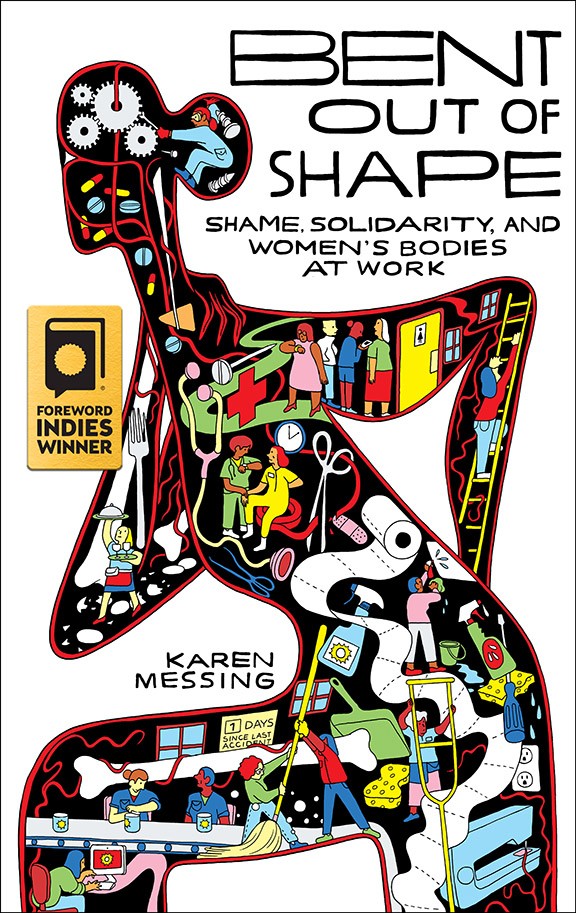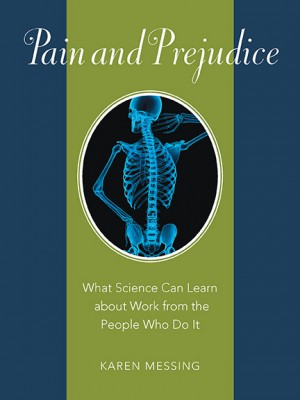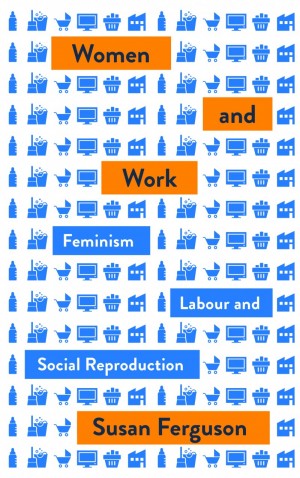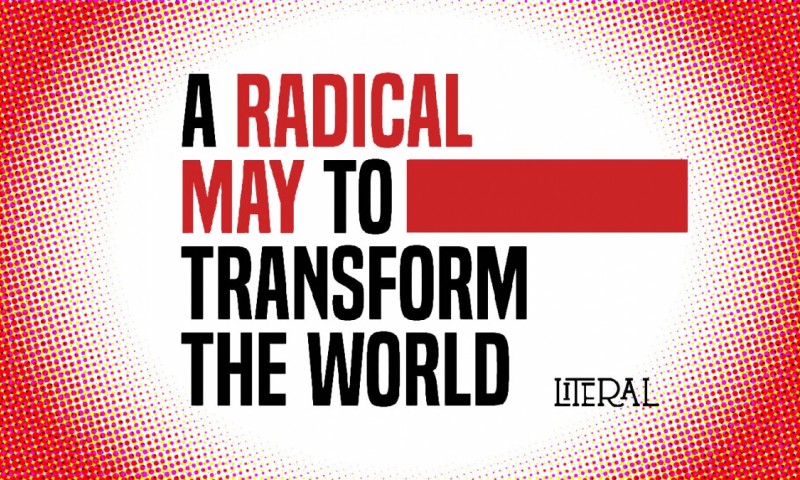
Bent out of Shape
Shame, Solidarity, and Women’s Bodies at Work
- The Mavis Gallant Prize for Non-fiction, 2021 (Short-listed)
- Foreword INDIES Book of the Year Award Gold Medalist, Women's Studies Adult Non-fiction, 2021 (Winner)
- Independent Publisher Book Award Bronze Medalist, Canada-East, Best Regional Non-fiction, 2022 (Winner)
- Leo Panitch Book Prize, 2022 (Joint winner)
Award-winning ergonomist Karen Messing is talking with women—women who wire circuit boards, sew clothes, clean toilets, drive forklifts, care for children, serve food, run labs. What she finds is a workforce in harm’s way, choked into silence, whose physical and mental health invariably comes in second place: underestimated, underrepresented, understudied, underpaid.
Should workplaces treat all bodies the same? With confidence, empathy, and humour, Messing navigates the minefield that is naming sex and biology on the job, refusing to play into stereotypes or play down the lived experiences of women. Her findings leap beyond thermostat settings and adjustable chairs and into candid, deeply reported storytelling that follows in the muckraking tradition of social critic Barbara Ehrenreich.
Messing’s questions are vexing and her demands are bold: we need to dare to direct attention to women’s bodies, champion solidarity, stamp out shame, and transform the workplace—a task that turns out to be as scientific as it is political.
Praise
A crucially important book for the growing field of sex and gender science. It describes the science of the female body as it meets the world of work and documents the many clashes of sex and gender that result in women’s occupational injury. In asking a range of important questions about how to fix sexist and damaging occupational practices and policies, Messing challenges all of us: unions, management, consumers, policy makers, women, and men to speak up and lose our reticence, whether it be based on shame or desperation, ignorance or oppression. An important read.
– Lorraine Greaves, senior investigator, Centre of Excellence for Women’s Health
Messing’s exploration into the gendered impact of work is illuminating. From rates of workplace injury to spaces designed explicitly for men, she offers an important critique of how the physical plays an important role in maintaining the patriarchy.
– Nora Loreto, author of Take Back the Fight: Organizing Feminism for the Digital Age
Alternately enlightening and enraging, Bent out of Shape made me look at the world of work in a whole new way. Messing deftly illustrates how gender differences rooted in both biology and social roles have been treated with a toxic mixture of sexism, shame, and secrecy by businesses, governments, and unions, resulting in untold costs in illness, injury, and misery. Bent out of Shape shows us that efforts to enforce workplace equality by ignoring gender differences have not resulted in true workplace equity. Advocating for better data, design, and policy, Messing draws on her decades of experience grappling with workplace inequality to propose solutions that would lead to healthier, safer, and more respectful workplaces for everyone.
– Leslie Kern, author of Feminist City: A Field Guide
In this compelling account of a lifetime spent fixing the workplace for women, Messing shows us that while change may not come easy, and women will face obstacles ranging from disbelief to outright hostility, progress is possible if we have the bravery to stick together. An indispensable—and hopeful—call to arms for women everywhere.
– Caroline Criado Perez, author of Invisible Women: Exposing Data Bias in a World Designed for Men
A compelling and important book about the health of women in the workplace. I have followed Karen Messing’s work for years, and hers is a unique voice, focused on working women, using feminist research tools and theories, but striving always to understand how the social and the biological are interlaced. Want to improve working conditions and on-the-job-health for women? Read this book!
– Anne Fausto-Sterling, professor emerita of biology and gender studies, Brown University
Once more, Dr. Karen Messing succeeds at captivating us with her beautiful writing; her well-crafted, thought-provoking anecdotes taken from her firsthand experience as an advocate for women’s rights; and her accessible use of the latest science on sex and gender issues in occupational health. Messing’s books are essential in bridging the gaps between generations of researchers and advocates for women’s health. I will be sure to add this to the list of recommended readings for my class and for my non-academic friends as well.
– Julie Côté, professor and department chair, Department of Kinesiology and Physical Education, McGill University
It may seem somehow wrong to say that a book called Bent out of Shape is a pleasure to read. However, I did find it a pleasure to read this provocative, complex, self-reflective, and witty analysis of the need to overcome the shame related to women’s bodies at work, as well as the importance of solidarity in addressing the contradictory pressures to recognize the specificity and diversity of bodies while working for equity. Informed by scientific evidence at the same time as it critiques the lack of evidence and makes it all accessible to the broadest audience, the book clearly establishes the need to take bodies into account in all labour processes. It should be compulsory reading for everyone, manager and worker alike.
– Pat Armstrong, distinguished research professor of sociology, York University
Contents
| Part I: Shame and the Workplace | 1. The third hour 2. Shame and silence in health care 3. A feminist intervention that hurt women? |
| Part II: Segregated Bodies | 4. Jobs and bodies 5. Same, different, or understudied? |
| Part III: Changing the Workplace | 6. Re-engineering women's work 7. Looking the dragon in the face 8. Feminist ergonomic intervention with a feminist employer 9. Solidarity |
| Part IV: Changing Occupational Health Science | 10. Science and the second body 11. Understanding women's pain 12. The technical is political 13. Going forward together |
| Index |

_300_478_90.jpg)




_800_480_c1.png)

